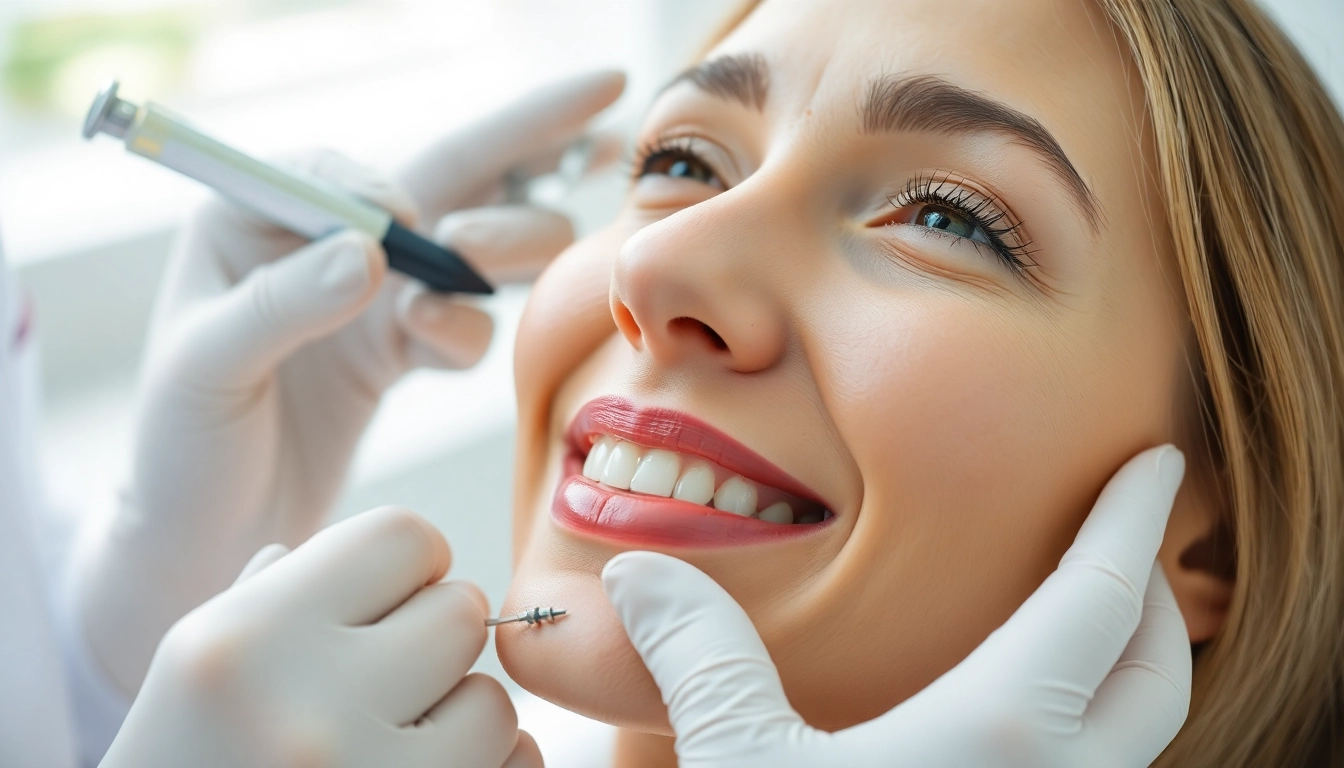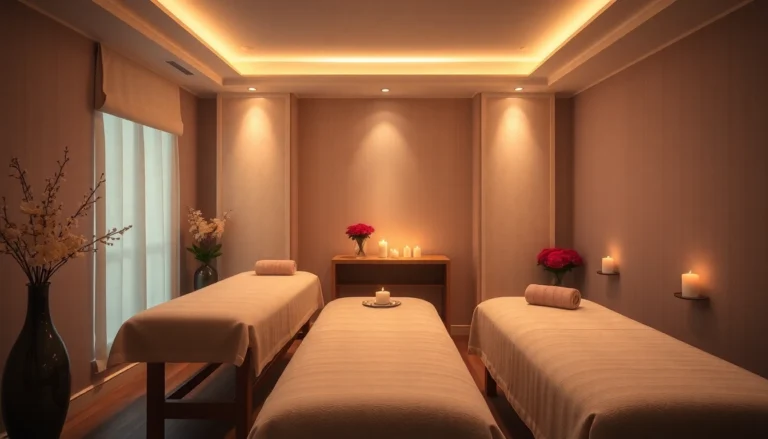Understanding Botox Behandlung
What is Botox?
Botox, or Botulinum toxin, is a neurotoxic protein derived from the bacterium Clostridium botulinum. It has gained prominence in both cosmetic and medical fields. In its purified form, Botox is used to temporarily paralyze muscles, thereby effectively diminishing the appearance of fine lines and wrinkles. The procedure involves an injection directly into the targeted muscles, leading to a relaxed state that allows for smoother skin appearance. Beyond cosmetic applications, Botox is used to treat various medical conditions, including chronic migraines, excessive sweating, and certain muscular disorders.
How Botox Behandlung Works
During a Botox behandling, the injected toxin blocks nerve signals that cause muscle contraction. The process typically lasts a few minutes, and its effects usually set in within a few days, enduring for several months. The targeted areas relax, resulting in a noticeable reduction of wrinkles. The precise mechanism is attributed to the binding of the toxin to nerve endings, inhibiting the release of acetylcholine, the neurotransmitter responsible for muscle contraction.
Common Uses and Benefits
Although known primarily for its cosmetic enhancements, Botox tiene a variety of therapeutic uses.
- Cosmetic Benefits: Reducing the appearance of forehead lines, crow’s feet, and frown lines.
- Medical Applications: Treating conditions like chronic migraines, excessive sweating (hyperhidrosis), and various muscular disorders.
- Non-invasive: Minimal downtime compared to surgical procedures, making it a preferred option for many.
- Quick Procedure: Treatment can be completed in a short appointment, often less than 30 minutes.
Preparing for Your Botox Behandlung
Consultation and Assessment
Every effective Botox Behandlung begins with a comprehensive consultation. During this appointment, the practitioner will assess your medical history, discuss your aesthetic goals, and evaluate whether you are a suitable candidate for the treatment. Informing your provider of any past allergic reactions, medications, or ailments can significantly influence the treatment plan.
What to Expect Before the Treatment
Prior to your Botox treatment, there are several preparatory steps to consider:
- Avoid Blood Thinners: Reduce or eliminate the intake of blood thinners such as aspirin or ibuprofen at least 48 hours before the procedure to minimize bruising.
- No Alcohol: Abstain from alcohol consumption for at least 24 hours before treatment.
- Inform Your Healthcare Provider: Disclose any current health issues or potential pregnancy to your provider.
Potential Risks and Considerations
While Botox is generally considered safe, several risks and considerations must be acknowledged:
- Common Side Effects: These can include pain at the injection site, swelling, headache, or mild bruising.
- Rare Complications: A droopy eyelid or uneven smile due to improper injection techniques. Ensure your provider is experienced and accredited.
- Health Conditions: Certain neuromuscular conditions or allergies to botulinum toxin should be disclosed during the consultation.
The Botox Behandlung Procedure
Step-by-Step Overview of the Treatment
The actual Botox procedure is quick and straightforward:
- Preparation: The area to be treated will be cleansed, and topical anesthetics may be applied to minimize discomfort.
- Injection: Using a fine needle, Botox is injected into targeted muscles in precise amounts.
- Post-Procedure Care: After the injections, patients are usually advised to remain upright for a few hours to prevent the toxin from spreading to unintended areas.
Duration and Aftercare Instructions
The entire treatment typically lasts 10 to 30 minutes, depending on the number of areas being treated. Aftercare is crucial for optimal results:
- Avoid Touching the Face: Do not rub or massage the treated area for at least 24 hours.
- Avoid Exercise: Refrain from strenuous activities for 24 hours post-treatment.
- Monitoring: Keep an eye on your injected areas for any irregularities and contact your provider if concerned.
Managing Pain and Discomfort
During the procedure, some patients may experience minor discomfort. To manage pain post-treatment:
- Cold Compress: Applying a cold pack to the treated area can reduce swelling and discomfort.
- Over-the-Counter Pain Relief: If necessary, mild pain relievers such as acetaminophen can be taken, although avoid blood thinners.
Results and Recovery from Botox Behandlung
Expected Outcomes and Duration
Results from Botox treatments typically become visible within 3 to 7 days, often reaching peak effect at about two weeks. The effects can last anywhere from three to six months. Over time, muscle activity gradually returns, leading to the reappearance of wrinkles.
Follow-Up Appointments
Follow-up appointments may be beneficial. These post-treatment consultations can help assess the effectiveness of the treatment and address any concerns, allowing adjustments for future sessions.
Addressing Common Side Effects
Understanding potential side effects allows for better management:
- Headaches: Common immediately following treatment but usually resolve quickly.
- Bruising and Swelling: Minor bruising may occur at injection sites, which typically subsides within a few days.
- Asymmetry: If the results are uneven, patience is essential; adjustments can be made during follow-up visits.
FAQs about Botox Behandlung
How Long Does Botox Last?
The longevity of Botox effects can vary by individual and treatment area, but generally, results last from three to six months. Over time, many patients find that regular treatments can lead to longer-lasting results due to muscle relaxation.
Is Botox Safe for Everyone?
Most individuals who meet certain health criteria can receive Botox treatment safely. However, those with neuromuscular disorders, pregnant or breastfeeding women, or those who have a history of allergic reactions to botulinum toxin should consult their healthcare provider to determine suitability.
Can Botox Cause Complications?
While serious complications are rare, they can occur. Commonly reported issues include unintentional muscle spreading leading to droopy eyelids or facial asymmetry. Selecting a qualified provider minimizes risks and ensures a safe procedure.

















